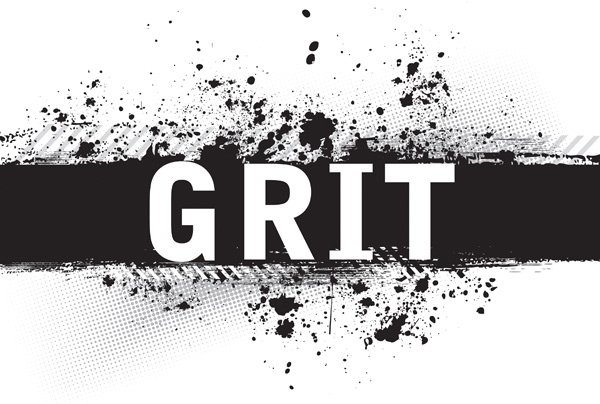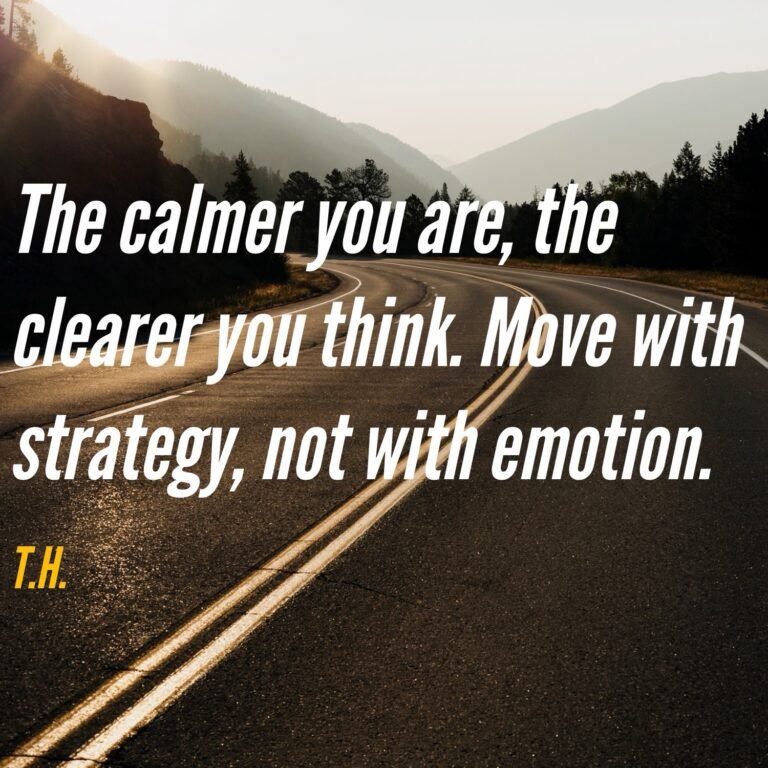Unlocking Your Potential: The Power of Sponsors, Coaches, and Mentors in Navigating Your Career Journey
The adage “surround yourself with people who will fight for you in rooms you aren’t in” has profound significance, especially for those who find themselves on the margins of society. This saying underscores the importance of fostering a network of allies who are eager to advocate for your cause in situations where your own voice may go unheard or your presence might be overlooked. It is natural to question the necessity of such a network. Is it simply a luxury, a nice-to-have, or does it hold a deeper, often underestimated value?
Individuals that are part of the LGBT community, identify as women, and/or belong to racialized minority groups frequently encounter structural barriers that hinder their progress and restrict their opportunities. An extensive body of research supports this unfortunate reality. Under these circumstances, the presence of a supportive network that actively champions their cause can significantly influence the trajectory of their professional and personal lives. Such a network not only showcases their abilities, talents, and achievements but also promotes their inclusion in areas where they might have been previously disregarded. For instance, the network might emphasize their musical background or connections to hard-to-reach populations.
Your Secret Superheroes: Sponsors, Coaches, and Mentors
But who precisely is part of this reliable network? Who are the individuals whose collective efforts possess the power to catapult your career to new heights, regardless of your chosen field? Enter sponsors, coaches, and mentors, who are often observed and cited as playing crucial roles within this network, each with their own distinct yet equally indispensable functions; sometimes their functions can overlap. Said differently, one could have a mentor who also acts as a sponsor.
A sponsor is usually a senior leader or influential figure who advocates for you, helping to secure high-profile opportunities. Their role is crucial, as they bridge the gap between you and environments otherwise inaccessible. While their support may be transactional at times, it can greatly enhance your visibility among upper management, even if only for a short duration. Can you recall a moment when someone’s endorsement enabled you to achieve a goal?
While sponsors help get your foot in the door, coaches prove invaluable once you’ve entered. They may be a trusted friend or a paid professional, but either way, their feedback and guidance significantly impacts your growth. A coach collaborates with you to identify your strengths and weaknesses, establish attainable goals, and offer feedback to further your professional development. Have you ever benefited from a coach who provided an objective perspective?
Mentors, the third component of this triumvirate, serve as invaluable resources when navigating the intricate maze of one’s professional journey. They often assume the role of confidant, providing guidance on critical life decisions and potential career paths. They serve as intellectual and emotional sounding boards. Their advice is available whenever needed and tailored to the specific requirements of the mentee, which adds immense value. Can you recall a teacher or guide who profoundly influenced your life?
The Power Trio: Not Just for Personal Gain
The importance of this trio, however, extends far beyond mere personal career advancement. They significantly contribute to creating an inclusive work environment that acknowledges, respects, and values diversity. Members of underrepresented groups receive active support from sponsors, coaches, and mentors, which aids in dismantling barriers and broadening access to opportunities.
Existing as a minority in certain settings can be emotionally and mentally taxing. Having individuals who offer emotional support, direction, and validation of one’s experiences can be immensely beneficial. This network bolsters resilience and supplies the momentum needed to surmount challenges and attain success. The sense of community and belonging fostered by this network can be incredibly empowering, enhancing self-confidence and self-esteem, both essential for personal and professional development. The reassuring notion of “surrounding yourself with people who will fight for you in rooms you aren’t in” transcends mere sentiment. Particularly for underrepresented groups, it represents a tactic, a lifeline, and an indispensable element for achieving one’s objectives. With the collaboration of sponsors, coaches, and mentors, success can be attained despite systemic barriers.
Let’s take a moment for a little introspection: who among your network serves as your sponsor, coach, or mentor? How are they aiding you in traversing the winding road of your career, and in what ways could you better leverage these relationships to achieve your set goals? Have you thanked them lately for their time and expertise?
Having a sponsor can drastically shift the trajectory of your professional life. They can connect you with influential figures, enhancing your profile within the organization and your credibility with clients. They advocate for your potential and abilities, ensuring you receive the assignments, promotions, and raises you’ve earned through your performance. A sponsor can unlock opportunities that you might not have been able to access independently. Have you shown your sponsor the recognition and appreciation they deserve? What is your personal story of sponsorship that impacted your career, or perhaps you impacted the career trajectory of someone else? Today I had a wonderful reference call that I am confident is about to open up a whole new career path for a talented and hardworking former employee.
Coaches serve as impartial third parties who highlight your strengths and aid in improving areas of struggle. Paid or unpaid, their purpose is to keep it , as the popular colloquialism goes today, One-Hundred with you. That is their function. Don’t get salty or mad with their feedback. It is meant to challenge and push you. If you need a hug, go see your mentor. Lol. They dispense advice, assist in establishing and reaching your goals, and provide constructive criticism. Your capabilities can be honed through the assistance of a coach, who can also help you overcome challenges and devise a plan for your professional development. Have you fully utilized the resources your coach offers?
Mentors, acting as the sage guides of your professional journey, can help you navigate the turbulent waters of your career by sharing their life knowledge and experience. They provide counsel and direction that can set you on the correct course for your professional life. You can bounce your ideas and concerns off your mentors, another invaluable service they provide. Besides offering useful guidance, mentors also provide emotional support by empathizing with the challenges associated with climbing the corporate ladder. Their expertise and experience can offer insights of immeasurable value, enhance your decision-making ability, and propel your career forward. Are you actively seeking advice from your mentor?
The Ripple Effect: Breaking Down Barriers
The significance of these connections extends far beyond the prospect of a single person’s career advancement. They contribute to a workplace culture that embraces and values diversity. Sponsors, coaches, and mentors play an important role in improving diversity, equity, and inclusion within an organization. They take an active role in assisting members of underrepresented groups, thereby contributing to the removal of obstacles and the expansion of opportunities.
The adage “surround yourself with people who will fight for you in rooms you aren’t in” is not merely an aspirational statement; it is a strategic mantra for success, especially for those who are marginalized in some way. You can overcome systemic barriers and realize your full potential with the help of sponsors, coaches, and mentors who collaborate on your behalf.
As we draw close to the end of this discourse, I encourage you to ponder two questions: Who are the individuals in your life who have been your sponsors, coaches, and mentors? Are you maximizing these relationships, and what other ways can you leverage these partnerships for your professional development? The steadfastness of these connections cannot be disputed, and their potential for expansion is limitless.
Remember, these relationships are not just about improving your professional standing or enhancing your skill sets. They serve a higher purpose of advancing inclusivity and diversity in our workplaces and society at large. The network of sponsors, coaches, and mentors empowers individuals, particularly those from underrepresented groups, to overcome systemic obstacles and unlock their full potential. It’s about creating a culture that embraces everyone’s unique talents and skills and recognizing that our collective strength lies in our diversity.
In a world where the rules are often stacked against them, marginalized individuals can, through the power of this network, rewrite the narrative. They can shift the paradigm and claim their rightful place at the table. This network can be the beacon that guides them through the labyrinth of their professional journey, illuminating the path towards success, and equipping them with the tools and resources necessary to reach their goals.
You Have a Role to Play
While this network of allies is essential, it is also crucial to underscore the importance of one’s own active participation in building, maintaining, and leveraging these relationships. It requires one to be proactive, receptive to feedback, and ready to seize opportunities when they present themselves. It’s about understanding your strengths, acknowledging your weaknesses, and being willing to step outside your comfort zone to learn and grow.
One’s relationship with a sponsor, for instance, is not a passive one. It is important to communicate your aspirations and ambitions clearly to your sponsor, making them aware of the opportunities you are interested in. Take the time to build a strong relationship with your sponsor, ensuring that they understand your strengths and capabilities. This will enable them to advocate for you effectively. In this pairing, the Sponsor drives the relationship, opening doors that would otherwise be close.
Similarly, working with a coach requires an openness to feedback and a willingness to work on areas of improvement. It’s about setting realistic goals and being willing to put in the work necessary to achieve them. A coach can provide invaluable guidance, but it’s up to the individual to implement this advice and strive for progress. Both mentee and coach drive this pairing initiating contact with each other as needed.
The relationship with a mentor is often driven by the mentee but t can be a two-way didactic relationship as well. It requires trust, respect, and a willingness to learn. It’s about being open to the wisdom and insights that a mentor can provide, and in turn, perhaps becoming a mentor to others in the future. This cycle of mentorship not only contributes to individual growth but also fosters a culture of continuous learning and development within organizations and societies.
It is important to remember that it’s not just about taking from these relationships; it’s equally about giving back. As you progress in your career, consider how you can become a sponsor, coach, or mentor to others, especially to those from underrepresented groups. By doing so, you are not only contributing to their individual success but also playing a part in creating a more inclusive and equitable society.
A Call to Action
In the broader perspective, this network of sponsors, coaches, and mentors is not just about the advancement of individuals; it also plays a pivotal role in societal transformation. They are instrumental in breaking down barriers, challenging the status quo, and fostering a culture of inclusion and diversity. By advocating for those who are often unheard or overlooked, they help create a society that values each person’s unique potential, regardless of their background or identity.
Surrounding yourself with people who will fight for you in rooms you aren’t in is not just a profound piece of advice; it is a call to action for all of us. Whether you are an individual navigating the professional world, or a leader within an organization, it is a reminder of the importance of building and nurturing a network of allies who can advocate for you and others. It is a call to challenge systemic barriers and strive for a more inclusive and equitable society.
This is an important topic and clearly, I had a lot on my mind about it. I encourage everyone to take a moment to reflect on your network of sponsors, coaches, and mentors. Consider how they have impacted your journey and how you can further leverage these relationships for your growth. More importantly, think about how you can contribute to this cycle of advocacy and mentorship, and play your part in creating a more inclusive world. Because ultimately, our collective success lies in the strength of our diversity, the resilience of our connections, and our shared commitment to equality and inclusion.







